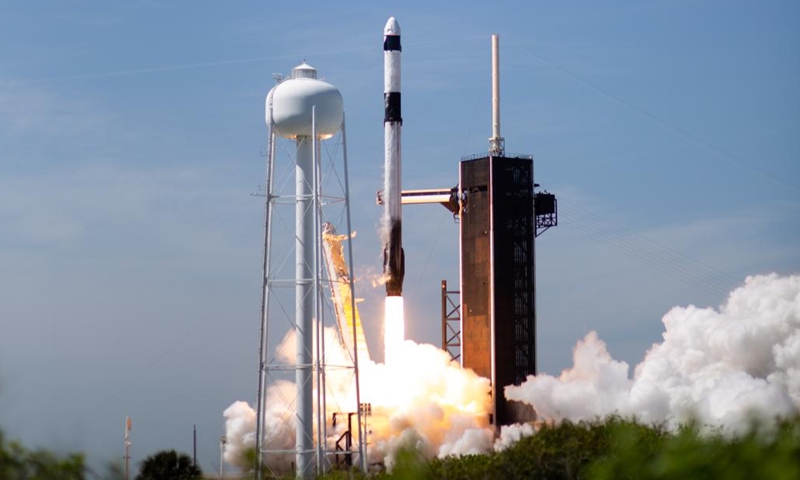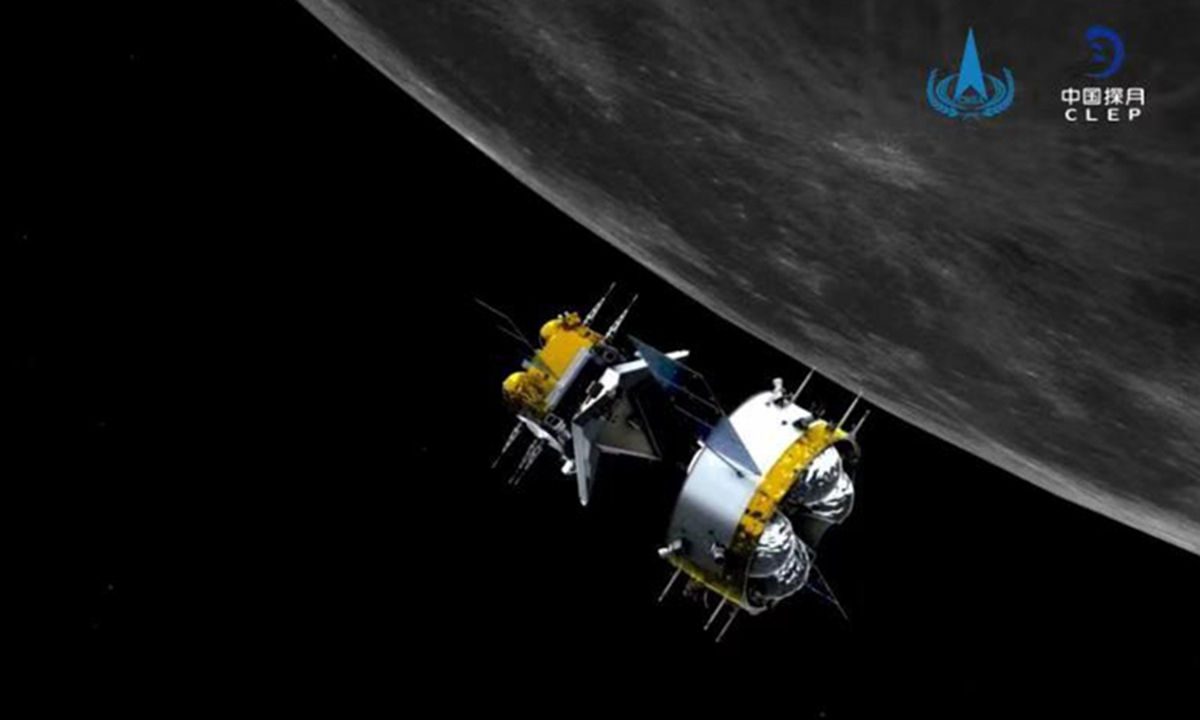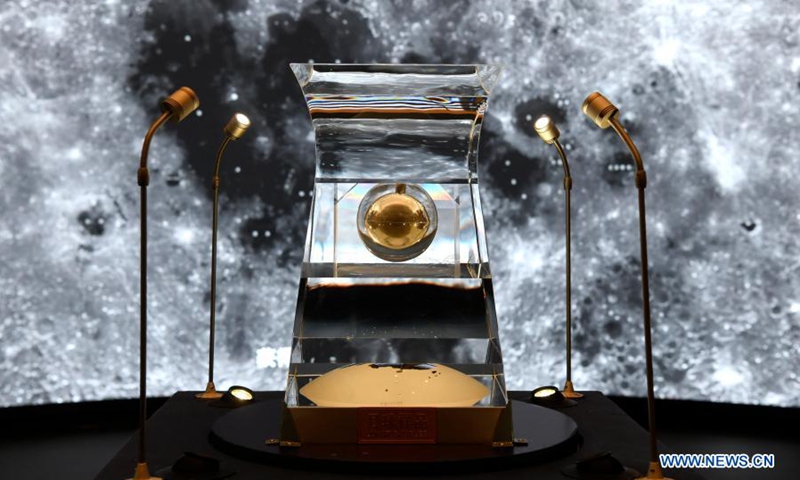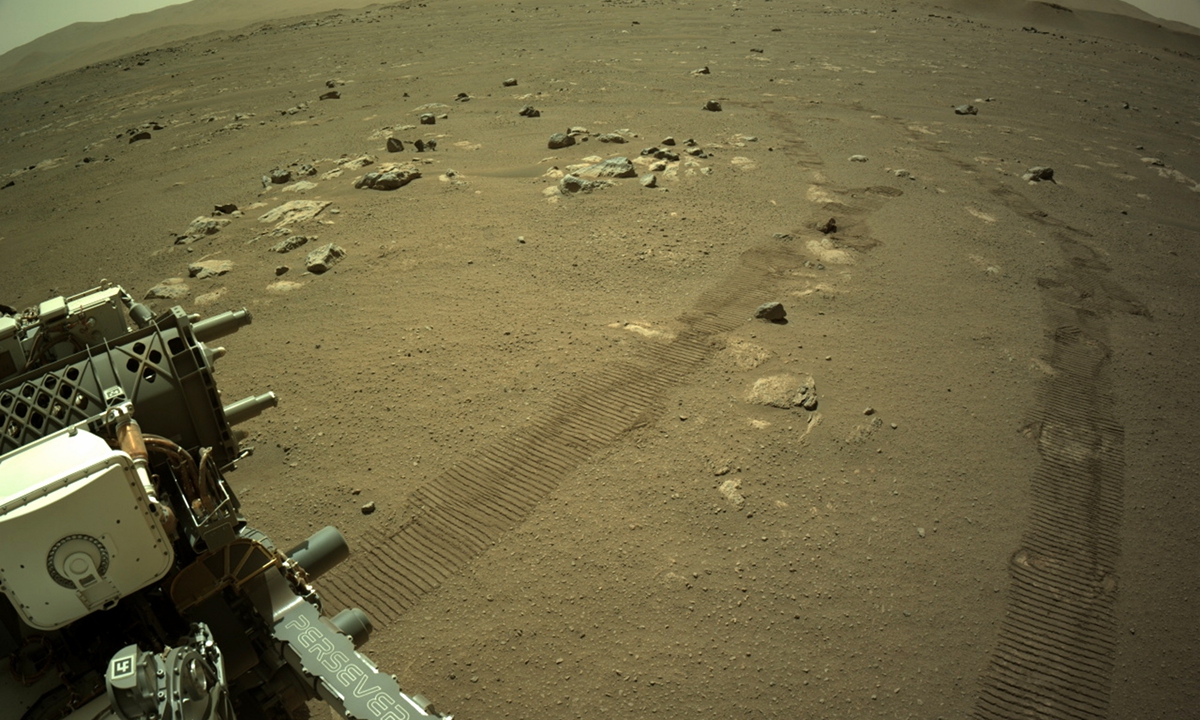
Share This
Thursday, September 1, 2022
PAS president Tan Sri Abdul Hadi Awang Racist comments: non-Muslims and non-bumiputra are the causes of corruption in the country

Artemis I launch canceled amid NASA chief hyping ‘space race’, as China's top space contractor CASC reveals new launch vehicle able to send Chinese to Moon by around 2030
Accusing China of "occupying the moon" exposes the America’s ambitions to monopolize space
A NASA helicopter flies past the agency's Space Launch System rocket on August 29, 2022. NASA called off the test flight on Monday of its largest-ever Moon rocket, citing engine problem. Photo: AFP
Beachgoers wait for the launch of the Artemis I unmanned lunar rocket, in Florida. Photos: AFP Arduous task According to NASA, the Orion will reach a retrograde orbit around the moon, traveling 2.1 million kilometers in 42 days. The mission will test the heat shield function of Orion capsule, and carry some small satellites to be placed in moon's orbit. If everything about the Artemis I mission goes on well, the second scheduled flight, the Artemis II is expected to launch SLS megarocket around the moon as early as 2024, testing key systems of the Orion spacecraft with humans on board. The Artemis III launch date is set for 2025 if the previous programs go as plan. Besides, space experts said optimistic progress on new spacesuit development and human landing systems are also necessary. However, according to evaluation from NASA's inspector general office, due to anticipated delay of the spacesuit development, NASA's hopeful timeline is "not only unlikely, but even impossible." Besides, the Lunar Gateway, a human-tended space station orbiting the moon that provides necessary support for long-term human return to lunar surface and a staging point for deep space exploration, has dragged the two Artemis missions to an "unsustainable crawl," due to its building cost, according to the Hill. Citing NASA's Inspector General, CNBC reported that the space agency is projected to spend $93 billion on the Artemis up to the fiscal year 2025. And the cost of a single SLS launch is about $4.1 billion, which NASA inspector general Paul Martin expressed his concern and described it as "unsustainable." Wang Yanan, chief editor of Beijing-based Aerospace Knowledge magazine, told the Global Times on Monday that "return to the moon" will not be an easy task for the US despite its advancement in science and technology. With so much money invested in Mars exploration and the International Space Station missions, it is doubtful that there will be sufficient and timely resources to achieve America's challenging goals of returning to moon in 2025, Wang said. To cope with difficulties, the US has involved commercial space efforts. US media said that Elon Musk's SpaceX, which has participated in Artemis III mission's landing site selection, plans to build a vehicle that will land US astronauts on the lunar surface. Besides, NASA also had its astronauts visiting SpaceX facilities for hardware tests. Involving commercial efforts showed NASA's forward-looking vision, but whether NASA has a set of efficient management mechanism of regulating these enterprises is uncertain. For NASA, it may be about engineering and technical maturity and reliability, but companies may be more concerned about share price and financing, Wang said. 'Space race' In an interview with NBC's "Meet the Press" on Sunday, NASA's Administrator Bill Nelson said that China's space ambitions have provided motivation for Artemis, according to the New York Times. Nelson said he doesn't want Chinese astronauts to arrive first and claim the territory and resources, describing that there's a "space race" between the two countries. In an interview with a German newspaper in July, Nelson smeared China for "trying to take over the moon" and saying China's mentality is like "it's ours now and you stay out." Experts said Nelson's inflammatory remarks are full of smears against China, which is actually not as fast as the US in scheduled time for landing on the moon. CASC disclosed on August 21 that China's new-generation manned rocket, which is currently under development, will possess the capability to send taikonauts to the moon by around 2030. The SLS-level megarocket is still under development in China, but in the US, one is now standing on the launchpad, a senior Chinese expert on aerospace science and technology based in Beijing, told the Global Times on condition of anonymity. The malicious speculation and smearing of China from Nelson are totally ill-intentioned, the expert said, "Since the dawn of the age of human exploration of space, no country has ever claimed some of the resources of outer space, especially when there's regulation from UN framework convention on cooperation in outer space." By using such colonialist rhetoric to smear China, the US wants to pressure countries interested in cooperating with China in space, and force some countries to take sides on the issue of space exploration, the expert told the Global Times on Monday. China has its own pace and has no interest in competing with the US to land on the moon faster, the Beijing-based expert said. "China hopes to make lunar exploration a long-term and internationally cooperative project. China's larger goal is to benefit more people rather than to compete for resources like the US." In January, China and Russia revealed a plan to jointly build a moon base by 2027, media reported. Dubbed the International Lunar Research Station, it will be a complex of research facilities for moon exploration, observation and experiment. Some other developing countries do not have the technical capacity and economic resources to build an outer space exploration program from scratch, but the cooperation between China and Russia will give more developing countries the opportunity to participate, he said.
As US scrubs Artemis launch for 2nd time, Chinese analysts slam highly politicized program
US space agency NASA has been forced to put on hold the launch of the inaugural mission of its ambitious Artemis program for the second time within a week, after the launch team failed to resolve a liquid hydrogen leak ...
NASA plans to bring 30 Martian rock samples back to Earth in 2033, the agency said Wednesday - ...
China plans to conduct several landings on the south pole of the moon in its Phase-4 lunar program, ...
China has determined more than 40 chemical elements in the lunar soil samples brought back by the Chang’e-5 ...
NASA chief Bill Nelson has freshly warned of a new "space race" with China, claiming that China wants ...
A tangled object discovered by NASA's Mars Perseverance rover has intrigued space watchers.
NASA plans to bring 30 Martian rock samples back to Earth in 2033, the agency said Wednesday - ..
Fish oil for better health; Importance of sleep
FISH oil is made up of fat and oil cells extracted from fish tissue. The fat and oil are condensed into liquid or capsule form for consumption. Fishes that are rich in omega-3 fatty acids such as mackerel, tuna, herring and anchovies are used for this purpose. Fish oil is known to be an effective way to help reduce the risk of heart-related conditions.
According to Health benefits and potential risks related to consumption of fish or fish oil published in Regulatory Toxicology and Pharmacology, the consumption of omega-3rich fish oil has the potential to reduce the risk of several cardiovascular ailments, including coronary heart disease, mild forms of hypertension, certain cardiac arrhythmias.
This is likely because fish oil has been linked to more sustainable levels of both cholesterol and blood pressure when used as a dietary supplement.
Cholesterol
Most people assume that having high cholesterol is an inherently bad thing. However, there is a distinction between ‘good’ low-density lipoprotein (LDL), and ‘bad’ high-density lipoprotein (HDL) cholesterol.
HDL is typically considered good for your body given its ability to absorb cholesterol and carry it back to the liver before being flushed out. Fish oil is a nutrient that is suggested to increase HDL cholesterol levels as stated in An Improvement of Cardiovascular Risk Factors by Omega-3 Polyunsaturated Fatty Acids published in the Journal of Clinical Medicine Research.
Adding fish oils to one’s diet is a great way to keep one’s heart healthy.
Blood pressure
According to Blood pressure response to fish oil supplementation: metaregression analysis of randomized trials by Journal of Hypertension, a high intake of fish oil helps with lowering blood pressure. It also finds this antihypertensive effect to be particularly present among older and hypertensive subjects.
This is important as blood pressure is what helps transport our blood, alongside oxygen and nutrients, across the circulatory system. It plays a crucial role in ensuring our body’s everyday functions continue to work properly.
When high blood pressure (otherwise known as hypertension) is left unmanaged, it can lead to several health complications that include an increased risk of potential heart attack, stroke, kidney diseases and more. - Star2

■ For more information, call 03-7490 2138.
Importance of sleep
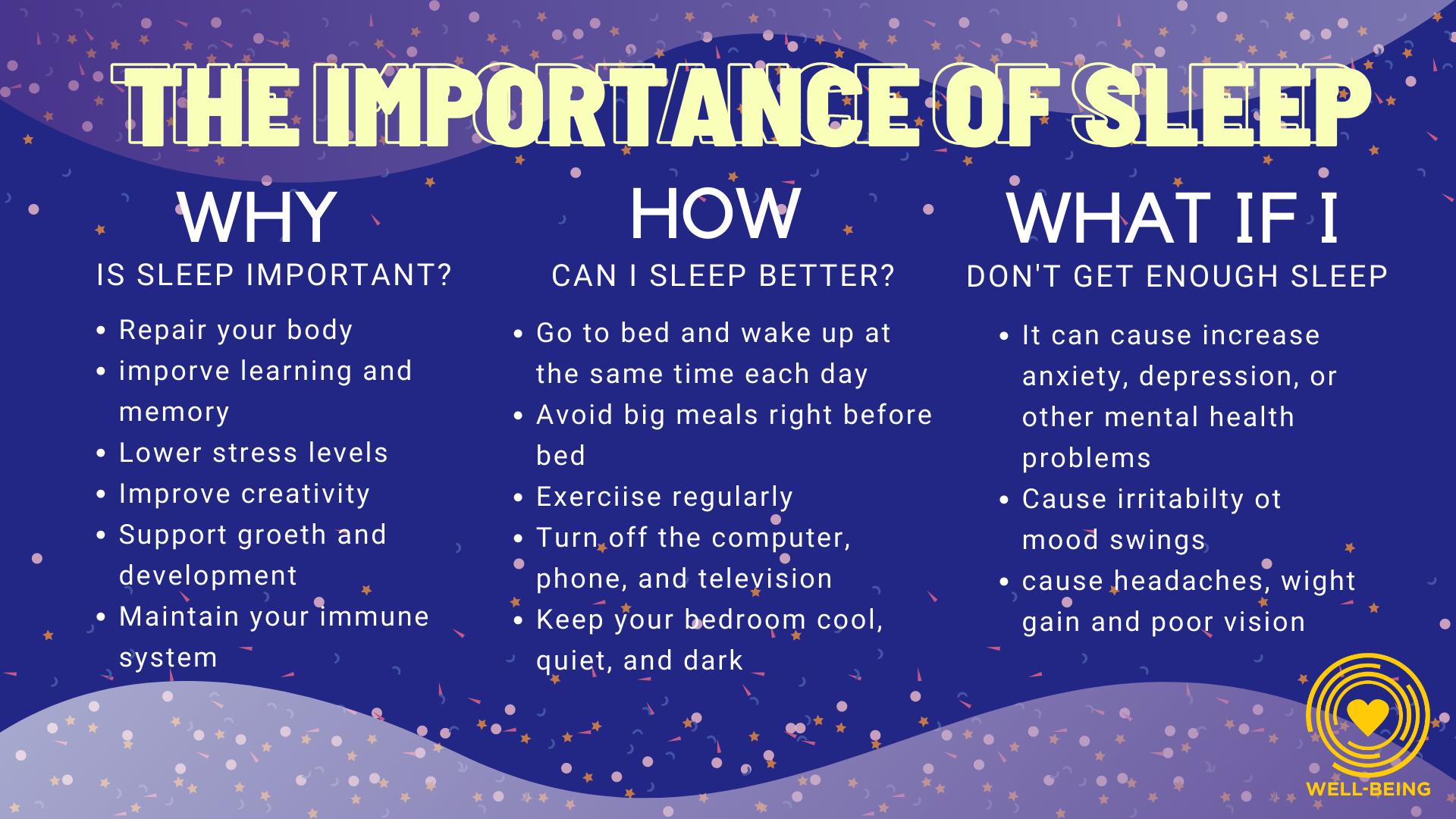
This informational article is brought to you by Vitahealth. For more information, call 1800 183 288.
Related posts:
When you have insufficient magnesium, mineral for relaxation
A lack of this important mineral could be causing you health problems without you even knowing it.








